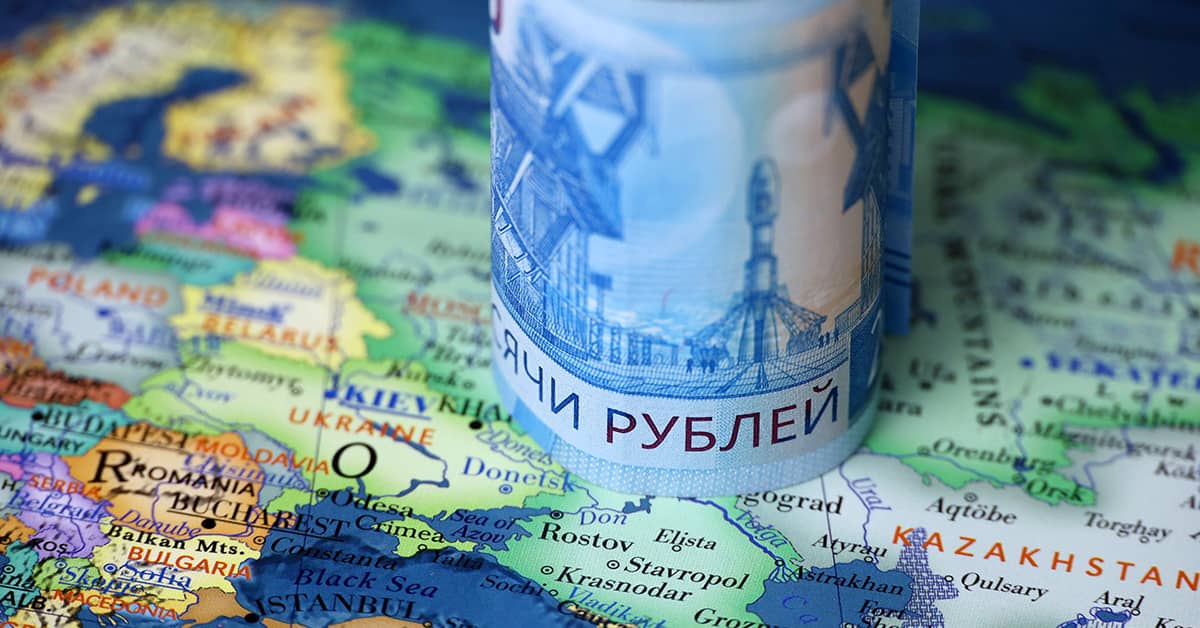Russia's biggest companies and the Russian government may soon be unable to make payments on their debt obligations.

Will they or won’t they default?
That’s the question that global investors are asking about whether Russia will default on its international bonds.
If the sanctions that have been imposed by much of the Western world on Russia’s economy remain in place—almost a sure thing, for at least many months to come—it’s more of a question of when, rather than whether, Russia defaults. In mid-March, ratings agency S&P cut Russian debt to “CC,” which means that S&P believes that default is “a virtual certainty.”
As recently as late February, Russian debt was rated investment grade (BBB-) by S&P and viewed as one of the stronger emerging-market credits, thanks to a low debt-to-GDP ratio and $634 billion in foreign reserves.
But following Russia’s invasion of Ukraine, Russian debt collapsed with unprecedented speed. The country’s central bank imposed capital controls to prevent foreign currency from leaving the country, which included a ban on coupon payments to foreign bondholders. Close to half of Russia’s foreign reserves were frozen, as part of sanctions imposed on the country, and the value of the ruble plummeted.
As a result, the ability of Russian banks to transfer payments to foreign creditors, due also to sanctions, was shrouded in uncertainty. Further contributing to the confusion was a warning by Russian President Vladimir Putin that the country could make bond payments in rubles, rather than dollars—which would violate the tenets of much of Russia’s foreign debt, and amount to a default.
Russia made a $117 million payment—in US dollars—to bondholders in mid-March. That averted what would have been the Kremlin’s first default since the 1998 financial crisis—and the first on international bonds since the country’s 1917 revolution, during which the Bolsheviks repudiated obligations of the Tsarist government.
Russia is due to make $4.7 billion in payments through the end of the year. Meanwhile, also at risk of defaulting are a handful of Russia’s biggest companies, as payments to bondholders are held up due to sanctions on their owners.
Global investors have already written off tens of billions of dollars in exposure to Russian assets. Meanwhile, Russian bonds—for those investors able to purchase them—became off-index bets when, in late March, the country’s fixed-income instruments were removed from all of JPMorgan Chase & Co.’s benchmark bond indexes.



